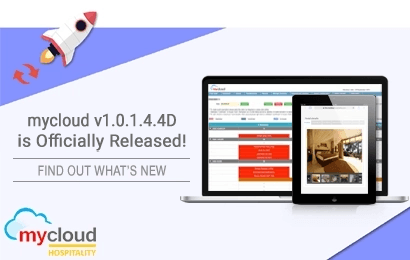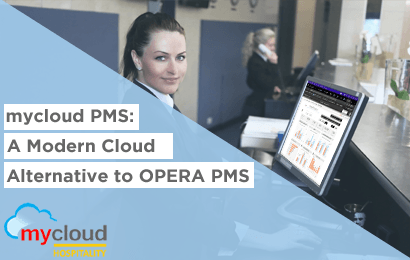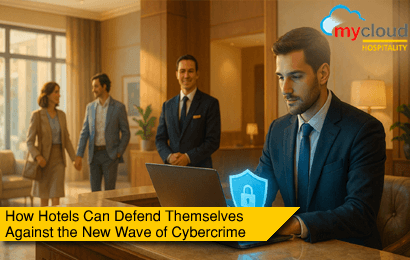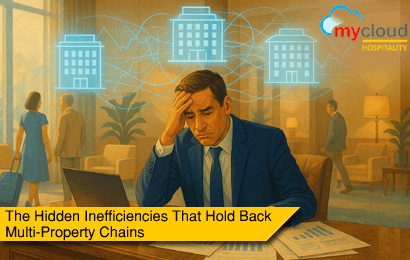In today’s hyper-digital hospitality world, cyberattacks are no longer rare events—they’re everyday threats. A recent CERT-IN report shows over 30% of Indian hotels faced cyber incidents in the last two years, from ransomware to stolen guest data. Hotels are attractive targets because they handle payment data, sensitive guest information, and run mission-critical systems. With India’s hospitality sector accelerating digital adoption post-pandemic, the attack surface is expanding faster than many properties can secure it.
Let’s explore why this makes hotel cybersecurity in 2025 an urgent conversation every owner and GM needs to have.
Why Hotels Are Easy Prey: Unique Cybersecurity Weaknesses in Hospitality
Unlike banks or IT firms, hotels often lack the same cybersecurity maturity. Many still run fragmented tech ecosystems with on-premise servers and vendor add-ons, creating vulnerabilities. Staff turnover is another issue—when new employees aren’t trained on digital hygiene, phishing emails or weak passwords can slip through easily.
Most mid-sized Indian hotels lack dedicated IT security teams, relying heavily on vendors and third-party booking engines. This dependency becomes a weak link. For instance, a boutique hotel in Goa recently suffered a ransomware attack after staff reused simple passwords across booking portals.
These realities highlight why attackers see hotels as “soft targets.” Let’s explore what specific threats loom largest.
The Most Common Cybersecurity Threats Hotels Face in 2025
Cybercriminals are innovating as fast as hoteliers adopt tech. The five biggest cyber risks hotels face today include:
• Phishing & Social Engineering
Front-desk and reservation staff are common phishing targets. Fake emails disguised as guest inquiries or vendor updates trick employees into revealing login credentials, enabling attackers to access sensitive systems.
• Ransomware Attacks
Hackers encrypt entire PMS and reservation databases, demanding ransom payments to restore access. Strikes during peak season can halt bookings, paralyze operations, and cause significant revenue losses within hours.
• Data Breaches
Guest passports, addresses, and credit card details are highly valuable on the dark web. Breaches expose sensitive information, damaging trust, attracting penalties, and harming long-term brand reputation.
• DDoS Attacks
Distributed denial-of-service floods hotel websites or booking engines with fake traffic. The result is downtime, blocked direct bookings, and heavy reliance on costly OTA channels during recovery.
• POS Malware Attacks
In-house point-of-sale systems are vulnerable to malware that skims guest card data. Undetected breaches can last months, leading to fraud complaints, regulatory fines, and steep financial liabilities.
According to IBM’s Cost of a Data Breach Report 2024, hospitality breaches average $3.3 million in losses—and that doesn’t include reputational damage. Let’s explore how Indian hotels have been hit in reality.
Real-World Cyberattack Incidents in Indian Hospitality (and Lessons Learned)
The hospitality industry in India has already seen painful wake-up calls.
Case 1: The Piccadily Hotel, Lucknow – Ransomware Lockout (2019)
A ransomware attack froze billing, inventory, and accounting systems, encrypting seven years of data. Hackers used phishing emails and ransom grooming tactics.
Lessons Learned: Staff phishing training, offline backups, and network segmentation are essential.
Case 2: Navi Mumbai Ransomware Strikes (2018)
Parallel ransomware crippled a hotel and hospital. Outdated security systems and weak firewalls let malware spread unchecked.
Lessons Learned: Always patch software, deploy intrusion detection, and isolate guest networks.
These cases prove one thing—cybersecurity lapses can shut down operations overnight. Let’s explore how your hotel can proactively build defenses.
Crafting a Cyber-Resilient Hotel: Must-Have Security Measures
Cyber resilience isn’t about expensive tools alone—it’s about discipline. In fact, 80% of breaches in Indian hotels could be prevented by basic hygiene (CERT-IN).
Here are must-haves for 2025:
• Cloud-Based PMS with End-to-End Encryption
Cloud-native PMS encrypts guest and operational data at all stages, reducing risks of theft from outdated on-premise servers while ensuring always-updated, secure infrastructure without heavy IT overhead.
• Staff Cyber Hygiene Training
Employees are the first defense line. Regular workshops on phishing recognition, password discipline, and device safety empower teams to prevent mistakes that lead to costly breaches.
• Multi-Factor Authentication (MFA)
MFA requires additional verification beyond passwords, like OTPs or biometrics. This simple step drastically reduces unauthorized logins, even if staff credentials are accidentally leaked or stolen.
• Frequent Patch Management
Unpatched systems are hacker entry points. Regular updates and security patches fix known vulnerabilities quickly, ensuring hackers cannot exploit outdated software across your hotel’s operations.
• Data Backups & Incident Response Plans
Scheduled backups, stored securely, enable fast recovery from ransomware or system failures. Coupled with incident response playbooks, they minimize downtime and protect long-term revenue continuity.
• Penetration Testing & Audits
Ethical hacking and regular audits reveal security blind spots before attackers find them. This proactive approach strengthens defenses and builds resilience against evolving cyber threats.
Hotels like Rang Mahal in Jaisalmer, after adopting digital systems, set clear IT policies and staff training schedules—steps that drastically reduced vulnerabilities. Let’s explore how cloud-native tech partners like mycloud Hospitality make this easier.
How mycloud Hospitality Helps You Stay Cyber-Safe
Technology is only as strong as the ecosystem supporting it. mycloud Hospitality is built cloud-first, with cybersecurity in the hotel industry as a top priority. Here’s how it safeguards hotels in 2025:
- Automatic Security Updates & Encryption: No manual patching headaches—data is always encrypted.
- Role-Based Access Controls & MFA: Ensure only the right staff access sensitive data.
- 200+ Secure Integrations: Seamlessly connect booking engines, gateways, and POS systems without weak links.
- Real-Time Monitoring & Audit Trails: Track every login and transaction to flag suspicious activity.
- Open API with PCI DSS & GDPR Compliance: Meet global standards without complexity.
- Built-In Backup & Disaster Recovery: Keep your hotel running even under attack.
For example, when a phishing attempt targeted one of mycloud’s partner hotels, the controlled user permissions and alerts prevented unauthorized access—proving proactive defense in action. Let’s explore why preparing today means peace of mind tomorrow.
Conclusion: Secure Your Hotel’s Future Before It’s Too Late
Cybercrime isn’t a far-off risk anymore—it’s happening every day. Whether you run a 200-room luxury property or a 30-room boutique stay, your guest data, systems, and reputation are valuable to attackers. Cybersecurity in the hotel industry is no longer optional—it’s survival.
With mycloud PMS, you get the best hotel management system that’s not only unified and cloud-powered but also built with hotel cybersecurity in 2025 at its core. From end-to-end encryption to real-time monitoring, it gives you confidence to grow without fear.
Schedule a free demo or start your 30-day free trial with mycloud Hospitality today—and secure your property’s future.
FAQs: What Hoteliers Are Asking About Cybersecurity
Q1. Are small boutique hotels really at risk of cyberattacks?
Yes—cybercriminals don’t just target luxury brands. Smaller hotels are often easier to breach because of weaker defenses, making them attractive targets.
Q2. How much can a cyberattack cost a hotel?
The average breach in hospitality costs around $3.3 million (IBM 2024), including lost revenue, fines, and recovery expenses. For smaller hotels, even a week-long disruption can be devastating.
Q3. How does a cloud PMS like mycloud improve cybersecurity?
Unlike on-premise systems, mycloud delivers automatic security updates, MFA, encryption, and secure integrations, ensuring you’re always protected without manual IT intervention.
Q4. What’s the easiest first step for hotels to strengthen security?
Start with staff training and MFA. These two low-cost measures can block a majority of common cyber threats.
Q5. What industries’ standards does mycloud comply with?
mycloud is aligned with PCI DSS and GDPR, ensuring both guest payments and personal data are secured to global benchmarks.










